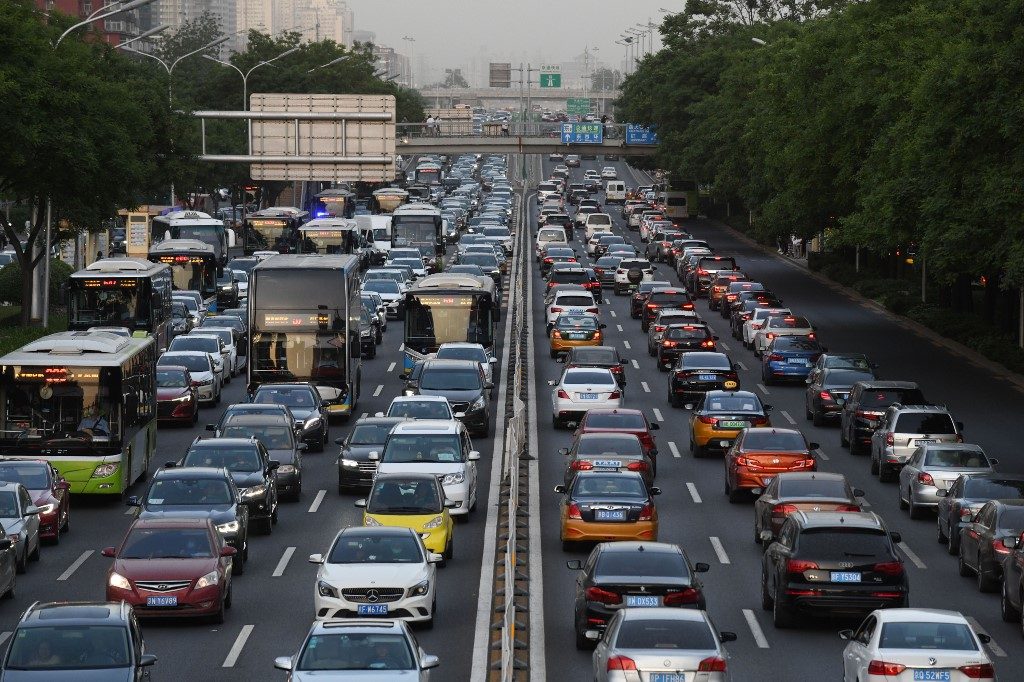SUMMARY
This is AI generated summarization, which may have errors. For context, always refer to the full article.

BEIJING, China – The lifting of coronavirus lockdowns in China has given the stuttering auto industry a jumpstart, with sales rising for the first time in two years as buyers return as the health crisis eases.
Sales in the world’s biggest car market began to slide in 2018 and plunged further when the pandemic paralyzed the economy, but they have rebounded as the country tames the virus and lifts restrictions on travel and businesses.
Sales rose 4.4% year-on-year in April, the latest figures from the China Association of Automobile Manufacturers show, driven by strong demand for commercial vehicles, which soared more than 30%.
The recent uptick came as China emerged from months of lockdown and restrictions on movement imposed around the country earlier this year to curb the spread of the virus.
Passenger car sales suffered at the time, plunging close to 80% from a year ago in February, according to China Passenger Car Association data.
The auto industry is a crucial one for China and among those that have been supported by state measures.
Beijing decided in late March to extend the tax exemption for the purchase of electric vehicles by two years.
Several municipalities have also lifted restrictions that cap the number of new vehicles put on the road – a move originally aimed at limiting congestion and pollution.
Subway fears
The moves are essential to help stimulate the market after its earlier fall, said Laurent Petizon of consulting firm AlixPartners.
“In recent months, business has been difficult because people have stayed at home,” said Zhang Fengkai, a sales employee at a dealership for Japanese brand Mazda in Beijing.
“But customers are starting to come back,” he told Agence France-Presse (AFP).
Some industry players believe the pandemic, which has killed more than 286,000 people worldwide, may be nudging consumers towards private vehicle ownership as they seek to avoid infections on public transport.
“Driving yourself is more practical and it is also more reassuring in times of an epidemic,” said an Audi sales employee surnamed Pu in the southwest city of Chengdu.
Volkswagen Group China’s chief executive Stephan Woellenstein said recently that “sales are normalizing.”
In a commentary published last week, he said the company has “seen interest from a new kind of customer, those keen to own a personal vehicle to escape the risks of infection on public transport.”
The recovery in auto sales after a virus outbreak is not a new phenomenon in China. IHS Markit analyst Henner Lehne told AFP that the 2003 SARS epidemic also led to strong demand for vehicles in the country.
But unlike the economic boom China was experiencing at the time of SARS, the economy contracted in the 1st quarter this year, hit by weakened consumer confidence and uncertainties relating to employment, he said.
Petizon warned a “double-digit” downturn was expected in the auto market this year.
For now, it appears that wealthy customers are returning to the market more quickly, according to Woellenstein, whose group owns the Porsche, Lamborghini, and Audi brands.
Electric vehicles are also on the rise, buoyed by recent support from Beijing, although this niche only represented about 5% of sales in 2019, said Lehne. – Rappler.com
Add a comment
How does this make you feel?
There are no comments yet. Add your comment to start the conversation.